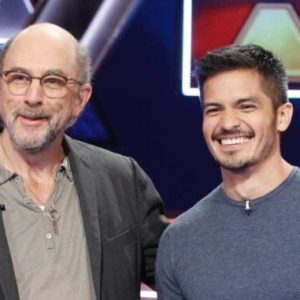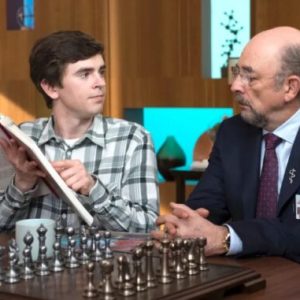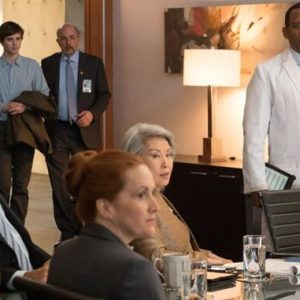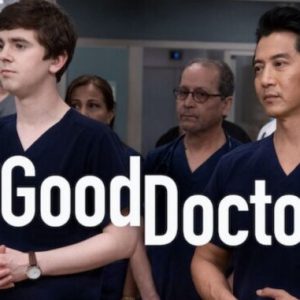Television is no stranger to medical dramas. From the high-octane pace of ER to the romantic turbulence of Grey’s Anatomy, the genre has long thrived on adrenaline, heartbreak, and life-or-death stakes. But amidst the sirens and surgical crises, The Good Doctor carved out something quieter—something deeply human. It never needed explosive plot twists or scandalous affairs to grab our attention. Instead, it gently held our gaze with something more powerful: empathy.
From its very first episode, The Good Doctor made a bold choice. Rather than following a seasoned lead surgeon or a chaotic hospital hierarchy, it focused on Dr. Shaun Murphy, a young resident with autism and savant syndrome. Played with extraordinary care by Freddie Highmore, Shaun is not your typical TV doctor. He doesn’t swagger into operating rooms or deliver monologues with sweeping music behind him. He speaks in flat tones. He avoids eye contact. He misses social cues. But he sees the world—and the human body—with a clarity that no one else does.
Where other shows create drama through chaos, The Good Doctor builds tension in the quiet. The most memorable scenes often take place in stillness: Shaun’s eyes flitting away in discomfort, Dr. Glassman’s slow exhale before delivering heartbreaking news, or Dr. Claire Browne squeezing a patient’s hand with nothing but shared understanding. These moments don’t scream—but they resonate. They echo with a truth we don’t often see on television: that real life isn’t always explosive. Sometimes it’s a whisper. Sometimes it’s a decision made in doubt, a tear held back, or a connection quietly forged in a hospital hallway.
At its core, The Good Doctor is not just about medicine—it’s about being. Being misunderstood. Being vulnerable. Being afraid, hopeful, angry, or broken—and trying to keep going anyway. The show doesn’t shy away from the complexities of its characters. Shaun isn’t a symbol of inspiration; he’s a full, flawed person trying to make sense of a world that often feels too loud, too fast, too illogical. And through him, the show asks a question that goes beyond stethoscopes and scrubs: What does it take to belong?
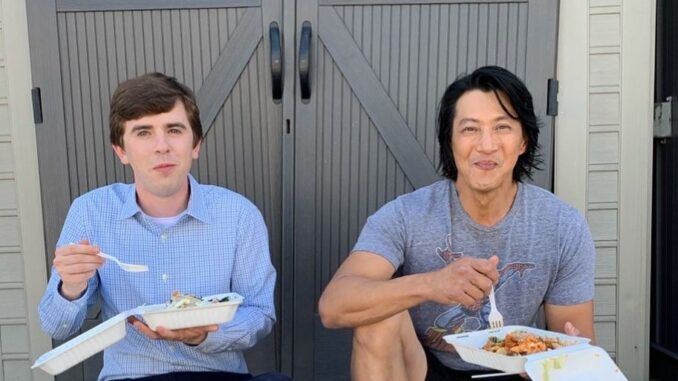
But the show’s humanity doesn’t rest on Shaun alone. Its ensemble cast brings layers of emotional richness that elevate each storyline. Dr. Claire Browne (Antonia Thomas) radiates empathy and strength, often serving as the emotional heart of the series. Dr. Aaron Glassman (Richard Schiff) is both mentor and surrogate father to Shaun, and his own journey—facing illness, grief, and personal reinvention—adds a quiet gravitas to the narrative. Lea Dilallo (Paige Spara), Shaun’s partner, isn’t just a romantic interest—she is a complex character in her own right, navigating love, loss, and what it means to live with and support someone different from herself.
Together, this ensemble doesn’t just play out medical scenarios—they invite us to care deeply about what happens after. What happens when a surgery doesn’t save a life? When a doctor makes the wrong call? When grief enters the room and there are no words to soften it? In this way, The Good Doctor becomes a masterclass in emotional storytelling. It’s not interested in glossing over pain with platitudes. It shows us the cost of being a caregiver—not just physically, but spiritually. Doctors here aren’t infallible gods in white coats. They’re tired, conflicted, sometimes broken people trying to do right in a world full of uncertainty. And that’s where the show shines brightest—because it never forgets that being a doctor isn’t just about diagnosing illness; it’s about seeing people.
The writing, too, reflects this commitment to authenticity. Ethical dilemmas are treated with seriousness and care. End-of-life decisions, cultural clashes in care, debates about autonomy and consent—these aren’t just plot points, but real conversations handled with thoughtfulness. And rather than spoon-feeding the audience answers, the show trusts us to sit with the discomfort, to reflect, and to form our own conclusions.
Of course, none of this would work without the exceptional performances that anchor the show. Freddie Highmore’s portrayal of Shaun Murphy is nothing short of transformative. His ability to communicate a world of emotion through restraint—through silence, hesitation, or repetition—is a rare gift. He never overplays. He never panders. He simply is. That kind of honest, textured acting is a rarity in a genre that often leans into melodrama.
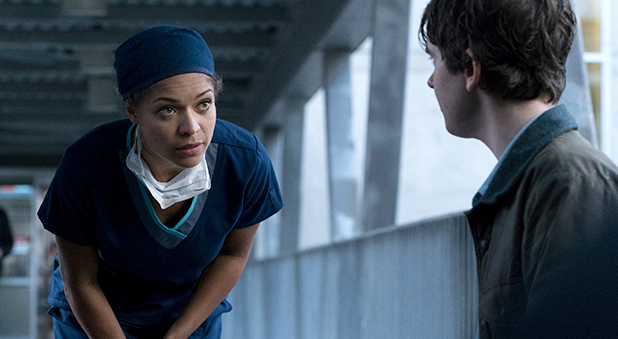
Likewise, Richard Schiff brings profound wisdom and weariness to Dr. Glassman. Antonia Thomas infuses Claire with warmth and quiet strength. And Paige Spara’s Lea, especially in later seasons, gives one of the most realistic portrayals of a partner learning to love across neurological differences—messily, imperfectly, but wholeheartedly. As The Good Doctor moves toward the end of its run, its legacy becomes clear. It will be remembered not for being the flashiest medical drama, but for being the most human. It didn’t just entertain—it moved people. It made viewers cry, reflect, and reevaluate what empathy looks like in a clinical world. In its best moments, it reminded us that we are all flawed, scared, and searching for connection—and that’s okay.
In an era where television often chases spectacle, The Good Doctor quietly insisted that there’s power in subtlety. That you don’t need explosions to move people—you just need truth. A truth found in the unspoken gestures, the faltering words, and the shared understanding between two people in a hospital room. Ultimately, The Good Doctor will be remembered not just for what it did, but for how it felt. It asked us to feel more deeply, think more generously, and love more openly. And that, more than anything, is why it deserves to be celebrated as one of the most human medical dramas of its time.
